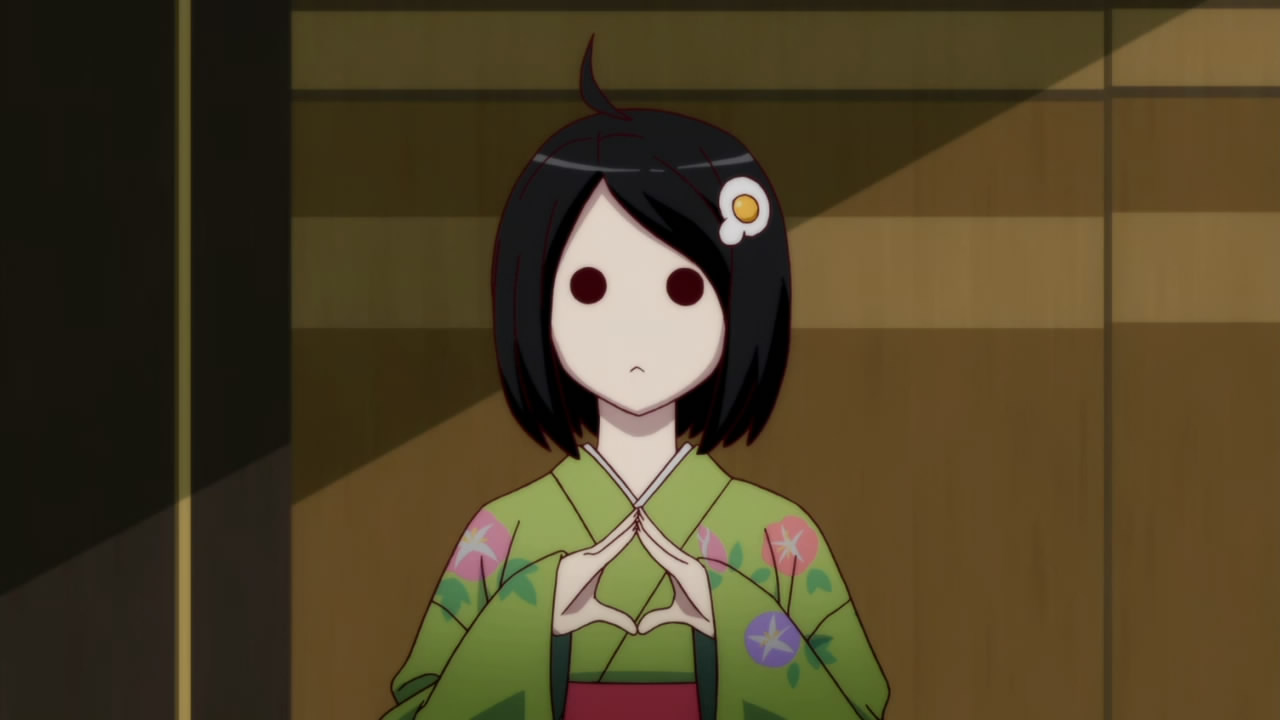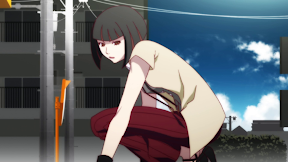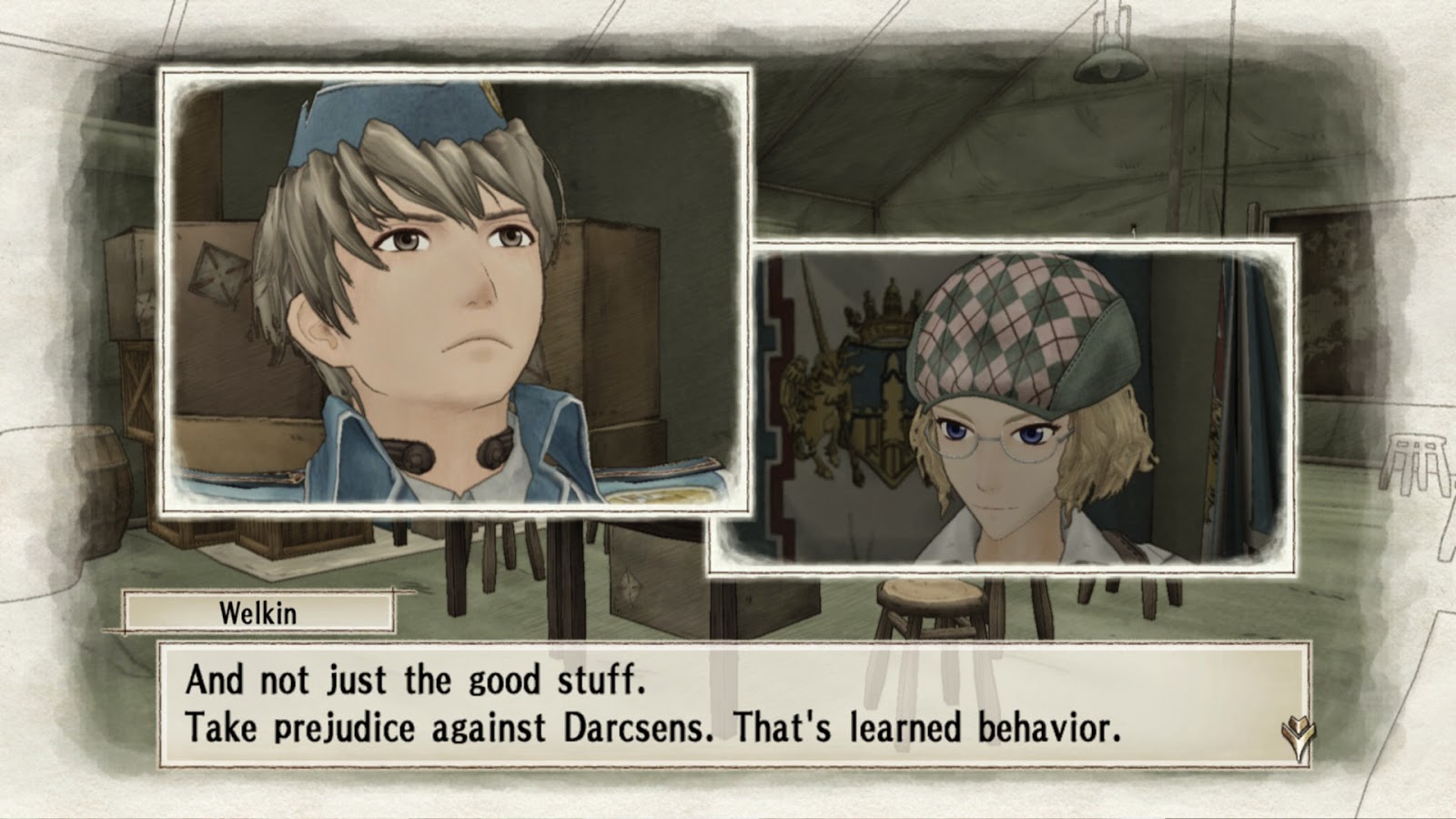Kaiki Deishu. Ominous, foreboding, and an imposing figure to behold, he walks with a certain gloomy intent that permeates from his very being, as Koyomi observed when he first encountered him outside of Kanbaru's house. Kaiki is incredibly amorphous in his potential for being both "good" and "bad"; he, for the most part, will do whatever nets him the most profit. Money is what makes the world go round, and money is what makes his endeavors worth it; he's logical and economical about it. As is more or less evident from the anime/previous posts, he is responsible for a lot of the headaches that plague Koyomi and Senjougahara; he duped Hitagi, he scammed children and made Karen sick, and he actually told Kagenui about Tsukihi, all for monetary gain, with little to no regard to the consequences; he claims to be a specialist only to carry out his work. He does not, however, believe a thing about the apparitions he works with. He proclaims himself to be a proud fake; he uses this status to manipulate others, to subject them to his own subtle machinations and machine outcomes that favor him and whatever else he might be after in a slippery and respectably complex manner. It is for this reason that he's not truly a bad person, nor is he even particularly an enemy. He does come around later on to assist the other main characters for his own motivations, which are increasingly developed into being complex and non-greed based.
One example would be his encounter with Kanbaru near the beginning of Hanamonogatari; like in other episodes he is actually responsible for much of what is happening but he offers some of his wisdom to Suruga.
Wisdom about life and...meat.
In any case, another egregious example of Kaiki at his best that occurs before Hanamonogatari is most definitely in Monogatari Series Second Season, particularly the final arc, Hitagi End; due to events from previous arcs within the same season, Nadeko, having become a god, is a threat to Hitagi and Koyomi's lives. So Hitagi reaches out to Kaiki to help. To deceive Nadeko and save them.
The decision to do so was not made easily.
But boy, when he gets to work he does incredible work. After spending time befriending and studying Nadeko, he confronts her with a secret that only she and he know, thanks to his snooping, athletic competence and ability to pick locks with yen.
And from that we get a good idea of the kind of person Kaiki is, the kind of character he is; a complex one, that eerily and incredibly emulates the complexity of people in general concentrated into an individual. We can all relate to him; our desire to fulfill our needs and benefit ourselves, our inexplicable bouts of altruism, whether truly altruistic or egotistical, and the things about ourselves that we don't quite understand, the things we do for others that simply refines and defines what we are at the core of our being despite the state of befuddlement such things leaves us in. We as people are in a constant state of confusion, internally, trying to realize ourselves, and this is manipulable, testable, encouragable; but it can also be a blessing, a way to better realizations of ourselves and a way to improve how effectively we can grow as humans and interface with others. Kaiki is incredibly complex and, though the examples given above are undoubtedly integral to the plot, all of the other little things Kaiki does simply add to his complexity as a character and reflect the complexity of characters and people in general as we struggle with our niche in society, our standing with others and our perception of the world and ourselves.






































































